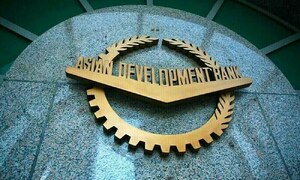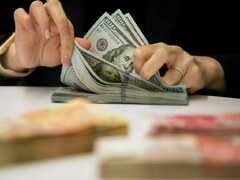Safe-haven currencies like the Swiss franc and the yen were in demand on Friday, having surged overnight as tensions in Ukraine flared up and worries about the health of the Chinese economy continued to fester. Russia launched new military exercises near its border with Ukraine on Thursday, showing no sign of backing down on plans to annex its neighbour's Crimea region.
US Secretary of State John Kerry said serious steps would be imposed by the United States and Europe if the referendum on Crimea joining Russia takes place on Sunday as planned. "With the approach of Sunday's referendum in Crimea, reports of Russian troop movements near the Ukraine border and escalating warnings of Western sanctions all contributed to renewed anxiety," analysts at BNP Paribas wrote in a note to clients.
The dollar stood at 101.81 yen, having fallen sharply from Thursday's peak of 102.865. The euro traded at 141.14 yen well below a high of 143.38 yen hit on Thursday. "The dollar and euro had been stuck in a narrow range for a while, and positions tend to build up in such an environment. When stops are triggered under those conditions, currency movements tend to be volatile," said Bart Wakabayashi, head of forex at State Street in Tokyo.
"The situation in Ukraine is worrying but the world has not changed dramatically since Monday, with chances of heavy Russian military involvement in Crimea still appearing limited," Wakabayashi said. Against the Swiss franc, the dollar traded at 0.8752 francs , having plumbed a 2-1/2-year low of 0.8698 francs. Market sentiment was already fragile after another batch of disappointing Chinese data on Thursday reinforced fears of a slowdown in the world's second-biggest economy.
Investors took cover in highly rated government bonds while dumping riskier assets, with Wall Street slumping more than 1 percent. The euro was further undermined by comments from European Central Bank President Mario Draghi, who said the strength of the currency was increasingly relevant to the bank's assessment of price stability as it was having a negative impact on inflation. The euro staged a dramatic reversal on those comments, retreating to $1.3867 from a 2-1/2-year high of $1.3967.
Market participants are waiting to see if the US producer price index and the University of Michigan sentiment index on Friday offer further evidence that the economy is regaining strength, following solid retail sales and employment data on Thursday. Commodity currencies, usually sold in times of heightened risk aversion, also came under pressure. That took the shine off the Australian and New Zealand dollars. The Antipodean currencies had been star performers on Thursday with the Aussie lifted by surprisingly strong jobs data, while a hike in New Zealand interest rates and talk of more to come gave the kiwi a solid boost. The Aussie last stood at $0.9034, having pulled back from a one-week high of $0.9104, while the kiwi was knocked back to $0.8548 from an 11-month peak of $0.8607.
BR100
15,085
Increased By
112.5 (0.75%)
BR30
44,012
Increased By
987.7 (2.3%)
KSE100
148,618
Increased By
1274.3 (0.86%)
KSE30
45,248
Increased By
370.7 (0.83%)





















Comments
Comments are closed.